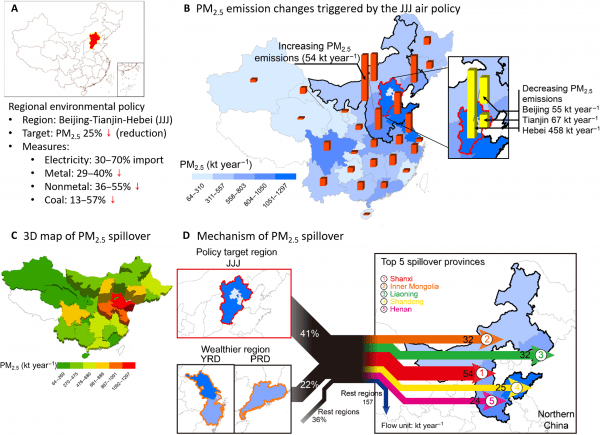GEOG Researchers Discover Unintended Spillover Effects of Regional Air Pollution Policies in China
As China enacts ambitious pollution control policies to improve air quality in urban areas, University of Maryland-Department of Geographical Sciences supported research finds these measures may just be passing off pollution problems to less-developed regions of the country. GEOG visiting Scholar Dr. Delin Fang and Research Professor Dr. Kuishuang Feng, in collaboration with researchers from Beijing Normal University and Peking University, used computer models of interregional trade and chemical flows in the atmosphere to simulate clean air policy scenarios in the urban Beijing-Tianjin-Hebei region—home to more than 100 million people—and evaluate the environmental impacts and spillover effects elsewhere in China.
Their results, published in Science Advances, found that reducing fine particle and carbon dioxide emissions as well as cutting water consumption in the urban region caused negative environmental impacts in neighboring provinces. This was due largely to the outsourcing of production and energy generation, the researchers said, pointing to the decision to close many coal power plants around Beijing and import electricity from surrounding regions where policy restrictions are more lenient.
Published on Wed, 05/08/2019 - 01:49


